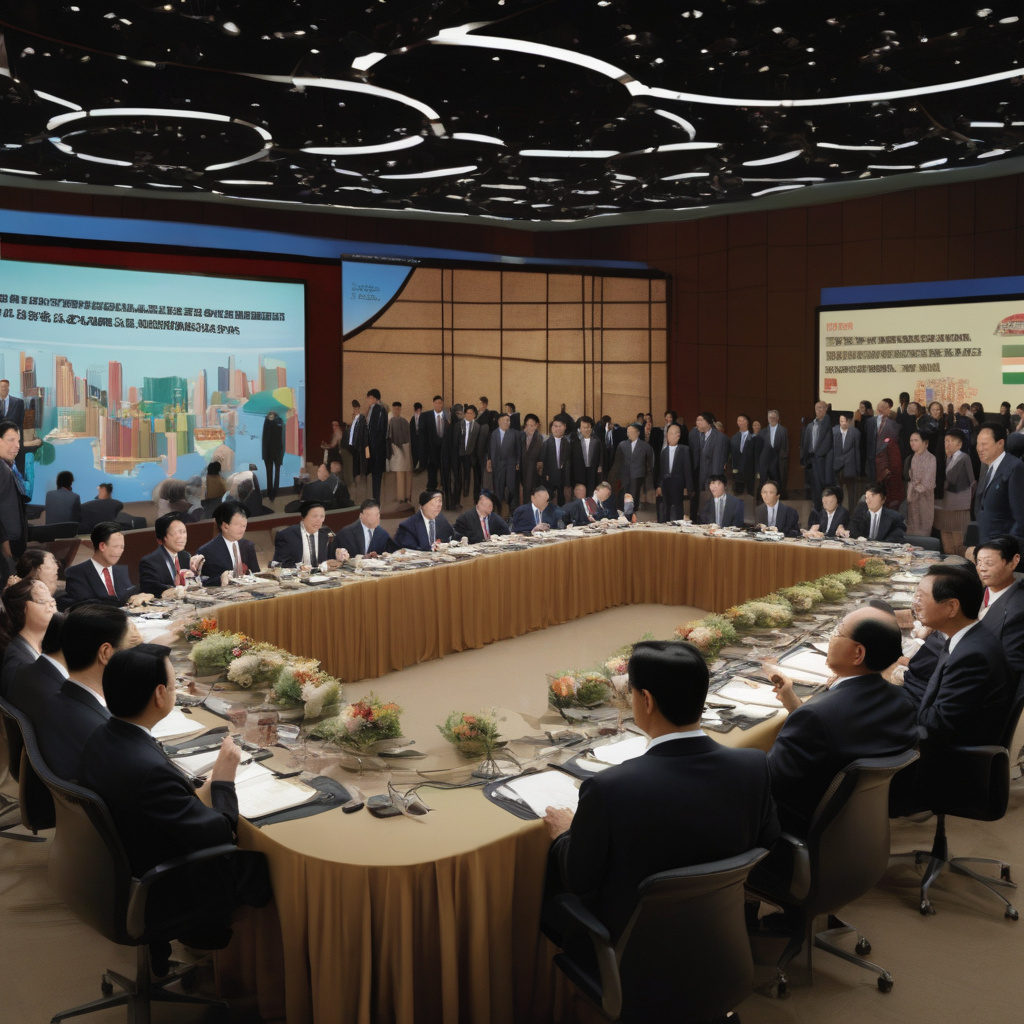Asian Economies in Rush to Cut Tariff Deals
In the face of soaring tariffs imposed by the Trump administration, Asian economies are scrambling to secure beneficial trade agreements to safeguard their manufacturing sectors. Countries like Bangladesh, Cambodia, and Thailand have found themselves in a precarious position as they navigate the complexities of global trade dynamics. With rates exceeding 30 percent looming over their exports, the urgency to negotiate favorable deals has never been more pressing.
The recent announcement of tariffs by the Trump administration has sent shockwaves through the global economy, particularly impacting manufacturing-reliant countries in Asia. Bangladesh, known for its thriving garment industry, has been hit hard by the prospect of steep tariffs that could severely hamper its ability to compete in key export markets. Similarly, Cambodia and Thailand, both prominent players in the manufacturing sector, are facing the daunting task of mitigating the potential fallout from the tariff hikes.
To address these challenges, Asian economies are actively seeking to forge new tariff deals that can offer them some respite from the punitive measures imposed by the United States. By engaging in strategic negotiations with key trading partners, these countries hope to secure preferential treatment that can help offset the impact of the tariffs on their export-driven economies. From exploring regional trade agreements to bilateral deals, Asian nations are leaving no stone unturned in their quest to cushion the blow of the looming tariff threat.
One of the primary drivers behind this rush to cut tariff deals is the looming August 1st deadline set by the Trump administration. With the deadline fast approaching, Asian economies are under immense pressure to finalize agreements that can provide them with a much-needed lifeline in the face of escalating trade tensions. The specter of continued high tariffs is a grim reality that these countries are keen to avoid, making swift and decisive action imperative in the current economic climate.
The urgency to secure favorable tariff deals is further compounded by the need to safeguard the livelihoods of millions of workers employed in the manufacturing sector across Asia. The garment industry in Bangladesh, the textile sector in Cambodia, and the electronics manufacturing industry in Thailand are just a few examples of the vital economic lifelines that are at stake. By proactively seeking tariff concessions and favorable trade terms, these countries are not only looking out for their own economic interests but also striving to protect the jobs and livelihoods of their citizens.
As Asian economies race against the clock to cut tariff deals and secure their economic futures, the importance of strategic diplomacy and savvy negotiation tactics cannot be overstated. The ability to navigate the complex web of global trade relations and strike mutually beneficial agreements will be key to weathering the storm of protectionist policies and tariff escalations. In the ever-evolving landscape of international trade, adaptability and foresight are the cornerstones of success for economies seeking to thrive in an increasingly competitive global marketplace.
As the August 1st deadline looms large, the coming weeks will be critical for Asian economies as they strive to secure the tariff deals that will shape their economic fortunes in the months and years to come. The outcome of these negotiations could have far-reaching implications not only for the countries directly involved but also for the broader global economy. The stakes are high, and the clock is ticking – the race to cut tariff deals is on, and the world is watching.
Asian Economies, Tariff Deals, Trump Administration, Manufacturing Sector, Global Trade, Economic Diplomacy, Trade Agreements, Export Markets, Economic Impact, August 1st Deadline












